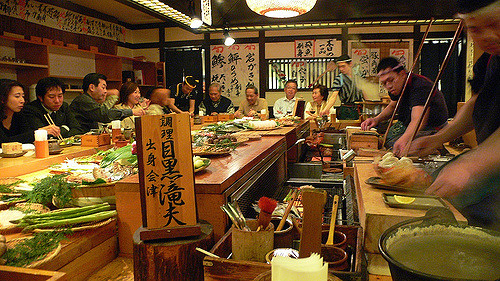Matapos na makumpleto ang documentation processes (read Part 1 of this How to Live in Japan series), dapat malaman ng isang dayuhan na maninirahan sa “Land of the Rising Sun” ang ilan sa kanilang makabulahang customs and traditions upang magkaroon ng tinatawag na wise cultural adaptations na magbubunga naman ng magandang epekto tulad ng pagiging versatile traveler na may well-rounded personality. Ilan sa mga kaugalian ng mga tao sa bansang ito ay ang mga sumusunod:
Mga General Ethical Standards in Japan
- Tipping is not Compulsory. If you are going to eat in a Japanese restaurant, you are not obliged upang magbigay ng tip hindi katulad sa Pilipinas na madalas may tip sa mga high end or fine dining restaurants. Bakit? Sapagkat ang bawat tauhan ng mga restaurants and bars ay mayroong living wage. Ito ang kanilang sahod para sa matapat na paglilingkod.
- Shoes on, Shoes off Policy. Hubarin ang inyong sapatos kung kayo ay papasok sa mga lugar na ito: carpeted rooms, certain restaurant areas at higit sa lahat sa pagbisita sa bahay ng inyong mga kaibigan at kakilala. Madalas natin itong makita sa mga Japanese movies at TV series.
- Be prepared to use a Robot toilet in Japan. Frequently, this is available in a public restroom. Characteristically, this is equipped with a heated seat, bidet and even a music accompaniment to your ears’ endless delight. So wag kayong magugulat na makakita nito hindi lamang sa mga public comfort rooms kundi sa iba pang lugar tulad ng hotels, restaurants, malls, at iba pa.
- Learn some Japanese gestures gradually. These are commonly hand gestures. For instance, if a Japanese points to his or his nose that person talks about his own individuality. On the contrary, if you are pointing on an object or person, it is definitely a sign of rudeness. Lastly, if you are literally full in terms of food and drinks, all you need to do is just wave your hand in front of your nose.
- Japanese personnel shout not because of their uncontrolled temper; but as a sign of welcoming a visitor or customers. Irrasshaimase means welcome in Japanese. This is also an indication that a staff is ready to assist and serve you.
- Don’t sneeze in public. Ito ay mahigpit na ipinagbabawal, dahil health conscious ang mga Japanese. Always wear a dental mask when commuting.
These simple tips will definitely help if you are about to migrate in Japan. You will surely earn an immeasurable kind of respect na di mo inaaasahan ngunit iyong nakamit dahil ikaw ay isang world-class voyager in a foreign land.
image credit: Cory Doctorow from Flickr























